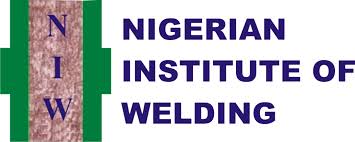The Nigerian Institute of Welding (NIW), a crucial body responsible for upholding welding standards and practices within Nigeria, is embroiled in a deeply divisive leadership crisis. The NIW, whose mandate encompasses training, certification, and standardization of welding practices, especially within the energy sector, plays a vital role in ensuring the quality and safety of welding operations in Nigeria. This crisis threatens to undermine its authority and effectiveness, impacting the numerous professionals and industries that rely on its expertise. The conflict centers around the legitimacy of a recent Annual General Meeting (AGM) and the authority of the individuals involved.
At the heart of the dispute are two opposing factions claiming legitimate leadership of the NIW. One faction, led by Professor Shehu Abdullahi Ma’aji, convened an AGM in Effurun, Delta State. During this meeting, Ma’aji highlighted critical challenges facing the institute, including governance gaps, regulatory non-compliance, financial mismanagement, and a decline in public trust. The meeting culminated in a motion to dissolve the existing executive structure and establish a caretaker committee to oversee fresh elections.
However, the NIW’s Board of Trustees (BoT), led by Dr. Chudi Egbunike, vehemently denounced the AGM, declaring it unauthorized and its resolutions invalid. The BoT asserts that Ma’aji, while a member of the Board of Trustees, lacks the authority to convene such a meeting or make decisions on behalf of the institute. They emphasize that only the Chairman and Secretary of the BoT are authorized to manage the institute’s day-to-day operations. The BoT further alleges that Ma’aji and his associates have been attempting to seize control of the institute illegally, acting against a court decision that previously declared similar meetings illegal.
The BoT insists that Ma’aji and his group are not recognized members of the institute and their actions represent a blatant disregard for the NIW’s constitution and established procedures. They characterize the AGM as a “shambolic exercise” and urge the public to disregard its outcomes. The BoT categorically denies the existence of a leadership crisis within the institute, assuring stakeholders that they will convene a meeting shortly to address the situation decisively.
The BoT’s secretary, Dr. Solomon Edebiri, further elaborated on the illegitimacy of the meeting, highlighting the legal framework under which the NIW operates and emphasizing the proper procedures for conducting AGMs. He pointed out that Ma’aji and his associates, including individuals not affiliated with the NIW, have no legal standing to convene such a meeting or implement its resolutions. Edebiri reiterated the BoT’s commitment to upholding the integrity of the NIW and ensuring its continued operation according to established rules and regulations.
This leadership struggle raises serious concerns about the future of the NIW and its ability to fulfill its mandate. The conflicting claims of authority create confusion and uncertainty among members and stakeholders. The accusations of financial mismanagement and governance gaps further erode public trust in the institute. A swift and decisive resolution to this crisis is crucial to restore stability and ensure the NIW can continue its vital work in promoting welding best practices and maintaining safety standards in Nigeria’s critical industries. The ongoing dispute underscores the need for clear governance structures and processes within professional organizations to prevent such power struggles and safeguard their integrity.
The implications of this crisis extend beyond the NIW itself, affecting the wider Nigerian energy sector and related industries that rely on the institute’s expertise. The uncertainty surrounding the NIW’s leadership could compromise its ability to effectively certify welding professionals and monitor industry standards. This, in turn, could have serious consequences for the quality and safety of welding operations in critical infrastructure projects, potentially jeopardizing both human lives and economic development. It is imperative that all parties involved prioritize a resolution that upholds the integrity and professionalism of the NIW, ensuring its continued contribution to the development of the Nigerian welding industry and the safety of its workforce. The timely intervention of relevant regulatory bodies may be necessary to mediate the dispute and restore order within the institute.














